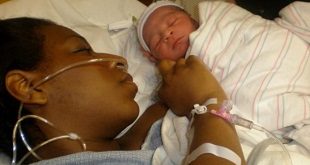
Why is it crucial and what can be done to improve on it?
SPECIAL REPORT | THE INDEPENDENT | Since the time of the Ancient Greeks, medical professionals have sworn the Hippocratic Oath, through which they commit to providing their patients with the best care possible. This includes patients of all different ethnic groups, religions, sexual orientations, and cultures.
But not all people feel the medical community understands their unique needs. For example, a 2019 study found that midwives in Uganda have a very low knowledge level about cultural competency in healthcare.
Titled `Cultural Assessment: A Study of Midwives’ Knowledge, Attitude and Self-reported Practice in Uganda’ , the study was done by Mercy Muwema, a registered nurse and lecturer at the Aga Khan University and others.
The study assessed the knowledge, attitude, and practice of cultural assessment by midwives in Uganda. Cultural assessment in healthcare settings is important because due to the increased movement and resettlement of people across the globe, and diverse cultural groups in Uganda. This is putting health care delivery systems under pressure to recognise the different attitudes of people towards health and to develop care systems that are effective in meeting diverse needs.
The study found that 57% of the 49 midwives who participated in the study, demonstrated a positive attitude, however, their knowledge level was low. Almost all the midwives 90% had not been trained on transcultural or cross-cultural midwifery during their basic midwifery programmes yet majority cared for at least 1 – 5 mothers a month from a culture different from their own.
Up to 65% of them reported occasionally experiencing difficulties or problems attributed to cultural differences in the course of offering healthcare.
Despite the diversity of the midwives’ clients and their experiences, over half of the midwives (55%) reported that they did not record cultural data during the assessment of mothers in labour. Where the data were recorded, it was limited to biographic information such as name, age, religion, tribe, and next of kin. These data were used to plan a client’s care. The major barrier to cultural assessment practice cited by the respondents was lack of time.
The researchers recommended that a culture-based curriculum and in-service training on cultural assessment be developed for midwives.
Elsewhere, a study from Stanford University found that Black men were more likely to talk about their health concerns with a Black doctor. Another study found that Hispanic people in the United States delay going to the doctor because they do not understand the healthcare system.
And not all doctors may believe they are capable of serving patients of all backgrounds. Past research shows that doctors from minority backgrounds, as well as female doctors, are more likely to serve minority and financially precarious populations.
Furthermore, a study from 2015 found that physicians and medical students felt underprepared when seeing patients who identified as lesbian, gay, bisexual, transgender, or queer. These are some of the reasons why cultural competency plays a large role in patient care.
A new survey conducted by Healthgrades — an online resource offering comprehensive information about physicians and hospitals in the U.S. — found that 31% of responding physicians agreed that their level of cultural competency affected their ability to provide the best possible care for their patients either somewhat or a lot.
Additionally, the survey found a generational difference when it comes to a doctor’s willingness to improve their cultural competency. Younger doctors, with fewer years of practice experience, appeared more interested in additional cultural competency training when compared to older doctors.
What is cultural competency?
Cultural competency is the ability to understand and respect the beliefs, values, and histories of individuals of all cultural backgrounds.
“For medical professionals, cultural competency is essential in providing effective quality care to patients of diverse backgrounds, particularly people from historically marginalized communities,” says Dr. Luz Maria Garcini, assistant professor in the Department of Psychological Sciences at Rice University, faculty scholar for the Center of the United States and Mexico, Baker Institute for Public Policy, and affiliate faculty at the Center for Research to Advance Community Health at UT Health San Antonio.
“Cultural competence improves interpersonal interactions, helps to build trust, conveys respect, reduces biases that may lead to inaccurate diagnoses and treatments, and increases the chances that patients may be more compliant with the medical recommendations given,” she told Medical News Today.
Dr. Arlette Herry, assistant dean of multicultural affairs at St. George’s University, agrees that cultural competence is of paramount importance in the healthcare system.
“We know that it leads to improved patient outcomes, reduced care disparities and inefficiencies, and ultimately, decreased costs,” she explained. “The social determinants of health are not the same for everyone, so health inequities create a serious challenge for patients and healthcare workers alike.”
“Cultural competence, in combination with cultural humility, is a powerful tool in addressing these disparities that people from diverse backgrounds experience, whether that diversity is culture, race, sexual orientation, socioeconomic status, religion, gender, disability — invisible or visible — to name a few,” Dr. Herry adds.
Additionally, Dr. Herry pointed out that cultural humility acknowledges the historical realities that have given rise to a lack of trust in the healthcare system among vulnerable populations.
“It also requires healthcare professionals to develop an awareness of their implicit biases and how they affect patient care as well as interactions with their colleagues,” she continued. “This can only happen with a continuous process of introspection, reflection, and self-evaluation.”
How aware are doctors of cultural barriers?
In the Healthgrades survey, 831 United States doctors were asked if a person’s personal identity traits — including language, race, gender, sexual orientation, and religion — had ever stopped them from providing the best possible care to them.
More than half — 54% — of responding physicians said none of these had affected their ability to provide care. Of the individual traits, language was the largest reason at 31%.
Healthgrades reportedly conducted a separate survey with the public at large. When asked if any of their personal identity traits prevented them from receiving proper care from their doctor, 10% of the participants who identified as people of color stated “yes.”
When doctors were asked to rate their readiness to care for people of different cultural or racial backgrounds, 87% rated themselves as “excellent” or “very good.”
However, only 68% of individuals who identified as people of color rated their doctor’s rate of readiness care as either “excellent” or “very good” in the parallel survey.
A combined 31% of responding doctors agreed their level of cultural competency impacts their ability to provide medical treatment either “a lot” or “somewhat.”
Responses to this question also showed a generational difference as younger doctors — in practice for less than 10 years — made up more of that 31% than older doctors who have been in practice for over 20 years.
And when asked if additional training would help a doctor improve the care they provide to people with different cultural backgrounds, a generational difference emerged yet again.
A combined 55% of younger doctors in practice for 10 years or less said more training would help them care for people from different cultural and racial backgrounds, and people of a different gender or sexual orientation.
And 63% of doctors in practice for 20 or more years said they did not need any additional training.
Improving physician cultural competency
What can medical schools do to help ensure new doctors are entering the medical field with cultural competence?
Dr. Herry said creating culturally competent and humble medical care workers starts from the recruitment process.
“Universities and medical schools should create mechanisms to hire diverse faculty and recruit a diverse student body,” she detailed. “Students should ‘see’ themselves reflected in their faculty. These practices foster a sense of (belonging) and allow for learning and sharing ideas in a safe, inclusive space.”
“Curricular strategies for cultural competency training must move beyond the lecture modality,” Dr. Herry continued. “The use of small group discussions and simulated patients where the nuances of diverse identities, such as disabilities, rurality, spirituality and end of life, gender and sexual minorities, and age, can be explored is a powerful learning and teaching tool.”
And for both new and current doctors, Dr. Garcini said the best way to build cultural competence is through exposure to diverse environments and communities.
“This is why systemic change to diversify our organizations and institutions is key,” she explained. “We need to learn, listen, and consult with each other [in] our everyday lives.”
“An important way to do this is for providers to immerse themselves into the communities that they serve,” Dr. Garcini added. “Providers need to engage in community activities, serve on community boards, talk to people in the community, collaborate with community leaders, and listen to what is important and what matters to the community. Then change may slowly begin to take place.”
****
Story based on Medical News Today report
 The Independent Uganda: You get the Truth we Pay the Price
The Independent Uganda: You get the Truth we Pay the Price



